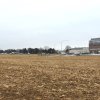Highmark Delaware grants $100K for tree stewardship program
The Delaware Center for Horticulture was recently awarded a $100,000 grant from Highmark Blue Cross Blue Shield Delaware’s BluePrints for the Community program.
The funds will support an expansion of DCH’s Neighborhood Tree Steward Program, which initiates local, community-based efforts in Wilmington to care for the urban forest through learning, training, advocacy and action.
“Social determinants of health cover a wide array of challenges, some more top of mind than others,” said Nick Moriello, president of Highmark Blue Cross Blue Shield Delaware. “The BluePrints for the Community Advisory Council is pleased to support the Delaware Center for Horticulture’s Tree Steward Program as it aims to improve physical health by way of physical landscape, that is beneficial for not just people, but our environment, as well.”
BluePrints for the Community, housed by the Delaware Community Foundation, has contributed over $17 million to the community since its inception in 2007. It was established to serve Delawareans, with emphasis on, but not limited to, the needs of the uninsured and underserved, and to reduce healthcare disparities in minority population and address social determinants of health.
“The Neighborhood Tree Steward Program is an indispensable part of DCH’s urban forestry and community engagement efforts,” said Vikram Krishnamurthy, DCH executive director. “Our work in this area is vital to supporting Delaware’s urban forest and strengthening our communities. This support from Highmark is a clear recognition of the linkages between the natural environment and health outcomes – links we are strengthening and promoting through DCH’s work.”
Delaware Center for Horticulture’s Neighborhood Tree Steward Program builds networks on a neighborhood level to plan, design and implement projects such as street tree plantings, vacant lot stabilization, and streetscape beautification programs in low- to moderate-income census tracts to improve the neighborhood and residential quality of life.
As higher percentages of street trees and urban tree canopy have been proven to improve property values and civic engagement, improve air and water quality, reduce street-level urban heat and decrease summer temperatures of buildings, a significant secondary benefit of the program is an enhanced quality of life for neighborhood residents.
The program engages residents in tree inventories, needs assessments and goal-setting, and ultimately adds new trees in areas where they are most needed according to a variety of environmental, social, and demographic criteria. An important program goal is to train the trainer, thereby building neighborhood-level leadership as a way to expand capacity for tree stewardship, increasing advocacy efforts by residents themselves and ultimately sustaining efforts over time.



















































